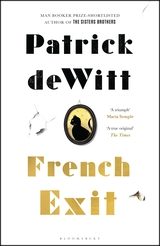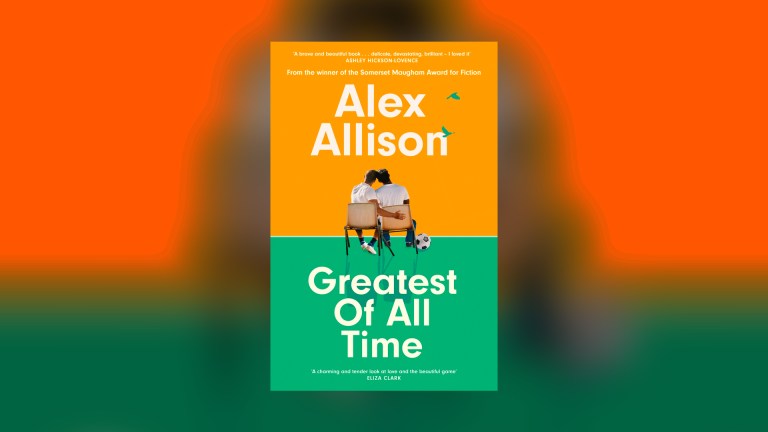Since his highly lauded debut Ablutions, novelist Canadian Patrick deWitt has stacked up admirers with a series of admired follow-ups. French Exit is his fourth novel, published just before the release of the Jake Gyllenhaal / Riz Ahmed-starring film adaptation of his second, award-winning book, The Sister Brothers. His previous work has seen him praised for his masterful balance of bright, sparky dialogue and humour with an atmosphere Shipping Forecast fans might describe as melancholy, becoming tragic. The excellent French Exit should further boost his blossoming reputation.

The story centres around über lady-who-lunches, Frances, and her dependent grown-up son Malcolm. Frances has long enjoyed an extravagant lifestyle thanks to her litigator husband Franklin’s career defending a stream of ‘repugnant’ corporate clients (his courtroom performances are assisted by a talent for improvised withering putdowns unmatched outside an Aaron Sorkin script). But Franklin’s sudden death leads to bankruptcy and brings the leisures and pleasures Frances shares with Malcolm to a gallingly abrupt halt. Their move to a friend’s apartment in Paris is less a choice than a humiliating last resort; Frances describes it as ‘an annihilation.’
The formidable Frances is eccentric, highly intelligent, cold blooded, and as witty as any Evelyn Waugh mother
Frances and Malcolm are terrific characters, immediately arresting. Malcolm, estranged from his mother until she swooped in to steal him from boarding school, has developed into an unapologetic oddball with an endless well of entertaining one-liners. This makes him great company, for the readers at least. His fiancé, while recognising him as ‘a lugubrious toddler’ wholly in thrall to his mother, is failing in her attempt to cut him out of her life. ‘He was a pile of American garbage,’ she observes, ‘and she feared she would love him forever.’
The greatest achievement of French Exit however is the glamorous, formidable Frances; eccentric, highly intelligent, cold-blooded in both personal and business relationships, she’s as witty as any Evelyn Waugh mother, and as contemptuous in casual conversation as her husband was in his courtroom interrogations. When her oily liquidator suggests dinner she coolly replies ‘Mr Rudy, I’d sooner fuck an eel.’
The re-location to Paris sees the novel’s wild rompish tone gradually dim and grow heavy as revelations of parental neglect and hidden sorrows turn it into a terrible tale of self-ruin more akin to Gatsby or Patrick Melrose than the Wodehouse or Mitford stories it initially conjures. This wintry shift – faintly comparable to Waugh’s A Handful of Dust – might vex some readers; I found it increasingly rewarding, and, in the end, oddly, unnervingly thrilling.

London-based Alba Arikha’s best known work thus far is the 2011 memoir of her adolescence in Paris, Major/Minor, in which she says the Jewishness her late father cherished is a mere ‘aside’ to her. One wonders if the intervening years have changed that; her new novel Where To Find Me tugs sharply at the heart with its portrayal of the everyday horror of the Holocaust before taking a sympathetic journey into occupied Palestine, just before the creation of her father’s beloved Israel.










